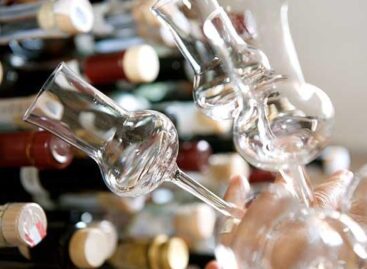Legal pálinka production in crisis: tax-free private distillation distorts the market
The situation of Hungarian commercial pálinka distilleries continues to deteriorate, their turnover has reached a record low, while the market is increasingly dominated by distillates made for private use but sold illegally. At the Pálinka National Council (PNT) Pálinka Day conference, experts analyzed the difficulties of legal pálinka distilling, the impact of abuses and the conditions for export opportunities – VG points out.
Illegal distillates dominate
 Gábor Barátossy, head of the department responsible for wine products and alcoholic beverages at the National Food Chain Safety Office, emphasized that while commercial distilleries are strictly controlled, there is no official oversight of the activities of private distilleries. This poses a serious problem from a food safety perspective, as home-made distillates are often sold illegally.
Gábor Barátossy, head of the department responsible for wine products and alcoholic beverages at the National Food Chain Safety Office, emphasized that while commercial distilleries are strictly controlled, there is no official oversight of the activities of private distilleries. This poses a serious problem from a food safety perspective, as home-made distillates are often sold illegally.
According to the estimated data:
- 8 million hectoliters of pálinka were produced in private distilleries,
- 4 million hectoliters in hired distilleries,
- while the production of commercial distilleries amounted to less than 600 thousand hectoliters.
This distorted competitive situation is also related to the fact that private distilleries are tax-free, while commercial distilleries struggle with significant tax burdens. Private distilleries originally require the use of their own fruit, but compliance with this is almost impossible due to the lack of control. Fruit purchases also typically take place without invoices, further distorting the market and increasing the price of raw materials.
Decline in pálinka sales
According to László Mihályi, president of the PNT, the main reason for the drastic decline in Hungarian legal pálinka sales is abuse. Retail sales and the turnover experienced at festivals have decreased, while restaurants only keep a few types of pálinka in stock. The decline in demand for alcoholic beverages is a global trend, but in Hungary it is further exacerbated by the spread of illegal products.
Related news
Related news
Storck Hungária: new sales manager has arrived
🎧 Hallgasd a cikket: Lejátszás Szünet Folytatás Leállítás Nyelv: Auto…
Read more >








